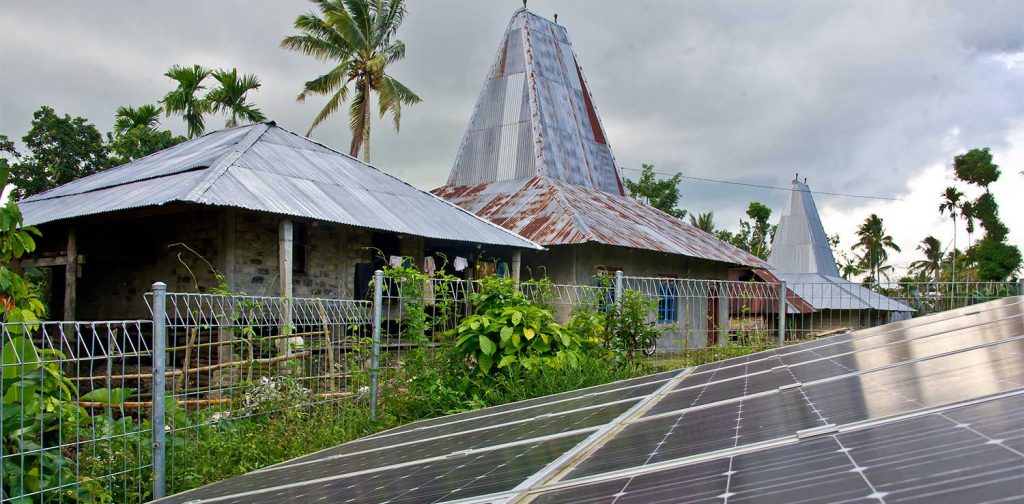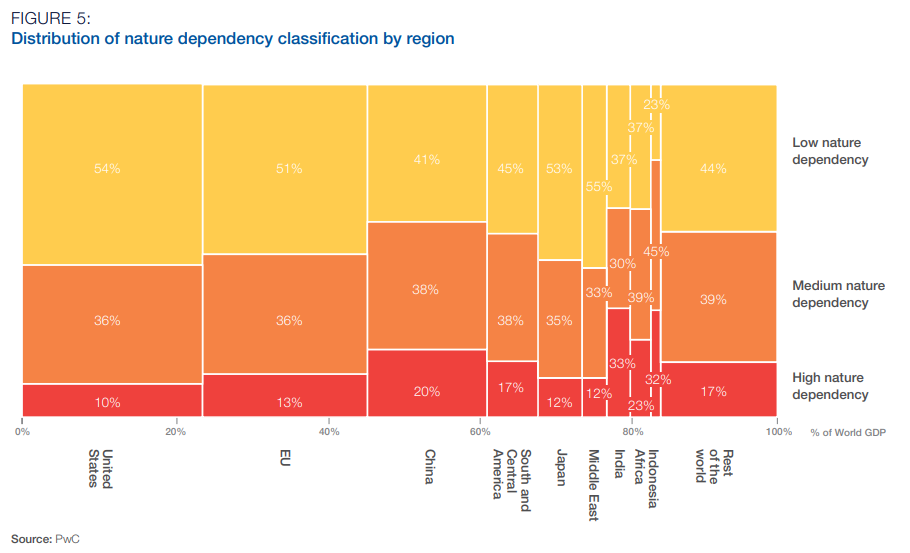How Indonesia Could Shift to a Green & Inclusive Economy

Source: Asian Development Bank
As the world becomes increasingly aware of climate change and its effects, the shift to a green economy is making waves worldwide. From the energy sector in India, Singapore Green Plan, the Olympic Games in Tokyo to the beauty industry, it is apparent that the sustainability aspect is a trend and a necessity these days.
Green economy is an economic system that integrates nature, people, and the economy tightly. In theory, this concept is no stranger to Indonesia with its similarity with the economic concept of Pancasila, its national ideology.
Transforming to a greener and more inclusive economy not only serves to anticipate critical environmental damage but also offers substantial investment opportunities and opens employment. A report on Nature Risk Rising by World Economic Forum and PwC states that a massive and systemic economic transition might open up US$ 10.19 billion in business potential and 395 million people in employment by 2030.
However, the same report exposes that the primary and extractive sectors still dominate Indonesia’s export. Indonesia, along with India, produces a third of its gross domestic products from industries that are very dependent on nature.

Furthermore, Indonesia’s economy is still reliant on the extractive sector. A study report from March 2021 by the Institute for Development of Economics and Finance (INDEF) and Greenpeace suggests that inconsistency in governance may be the root of the country’s obstacles. Contradicting policies and regulations are evident, as well as shaky implementations.
For example, Indonesia allocates 8% of its COVID-19 recovery stimulus to green initiatives. Yet, the government still gives a significant amount of subsidy for BUMNs (State-Owned Enterprises) in the extractive sector that produce massive carbon emissions, such as PLN (state-owned electricity company) and PT. Pertamina (state-owned oil and natural gas corporation).
A successful shift to a green and inclusive economy is still possible. Below are the recommended actions from the INDEF and Greenpeace report:
- In attracting global investment, the government must shift the focus from quantity to quality. Massive global investors are keeping their eyes on states and businesses with ESG (Environmental, Social, and Governance) aspects and focus, leaving the neoclassical economy behind. Indonesia needs to change its exploitative regulations.
- The government must stop giving incentives to exploitative and extractive sectors. Only increasing the incentive for green sectors is not enough for the transformation to renewable energy to happen in time.
- Indonesia’s export goods must change from primary commodity to value-added commodity. The value-added commodity enables better nature conservation and higher long-term profit.
- The government must be consistent in making policies and regulations. Right now, there are contradictory policies such as those on clean energy, minerals, and coals. Environmental and social costs must be considered in policy-making.
- Priority must go to micro, small, and medium enterprises and indigenous communities. The government must prioritize those entities for a successful transformation to a green and inclusive economy.
Editor: Marlis Afridah
Nazalea Kusuma
Naz adalah Manajer Publikasi Digital Internasional di Green Network Asia. Ia pernah belajar Ilmu Perencanaan Wilayah dan Kota dan tinggal di beberapa kota di Asia Tenggara. Pengalaman pribadi ini memperkaya persepektifnya akan masyarakat dan budaya yang beragam. Naz memiliki sekitar satu dekade pengalaman profesional sebagai penulis, editor, penerjemah, dan desainer kreatif.

 Test Custom Feature Image
Test Custom Feature Image  Electric Vehicles Roam the Roads of Kenya
Electric Vehicles Roam the Roads of Kenya  FedEx Engages Employees with Beach Clean-Up Initiative
FedEx Engages Employees with Beach Clean-Up Initiative  Come Back Stronger: Building Philippines’ Resilient Economy Post-COVID-19
Come Back Stronger: Building Philippines’ Resilient Economy Post-COVID-19  Inside Experian’s Sustainability Journey: An Interview with Chief Sustainability Officer Abigail Lovell
Inside Experian’s Sustainability Journey: An Interview with Chief Sustainability Officer Abigail Lovell  5 Food System Actors That Have Taken the 123 Pledge to Reduce Food Loss & Waste
5 Food System Actors That Have Taken the 123 Pledge to Reduce Food Loss & Waste  Test premium post
Test premium post